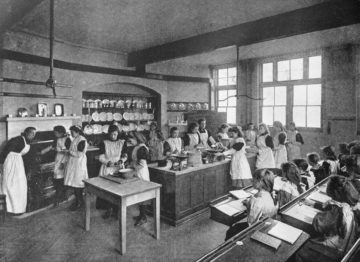Paul Tough at Lapham’s Quarterly:
 As these debates about identity and representation in American education were raging throughout the twentieth century, a second major shift was taking place. The central belief of Horace Mann and Catharine Beecher—that the point of education was to purify young souls—gradually gave way to a more utilitarian calculation that schools, first and foremost, were places to gain the skills that were valued in an increasingly competitive labor market. By 1972, when Gallup asked American parents why they wanted their children to be educated, the most frequent response was “to get better jobs”; “to make more money” was the third.
As these debates about identity and representation in American education were raging throughout the twentieth century, a second major shift was taking place. The central belief of Horace Mann and Catharine Beecher—that the point of education was to purify young souls—gradually gave way to a more utilitarian calculation that schools, first and foremost, were places to gain the skills that were valued in an increasingly competitive labor market. By 1972, when Gallup asked American parents why they wanted their children to be educated, the most frequent response was “to get better jobs”; “to make more money” was the third.
This shift began early in the twentieth century, at a moment of great turmoil for American workers. Agriculture still employed about a third of all working Americans, but that fraction was shrinking quickly, while the service sector was rapidly expanding.
more here.
